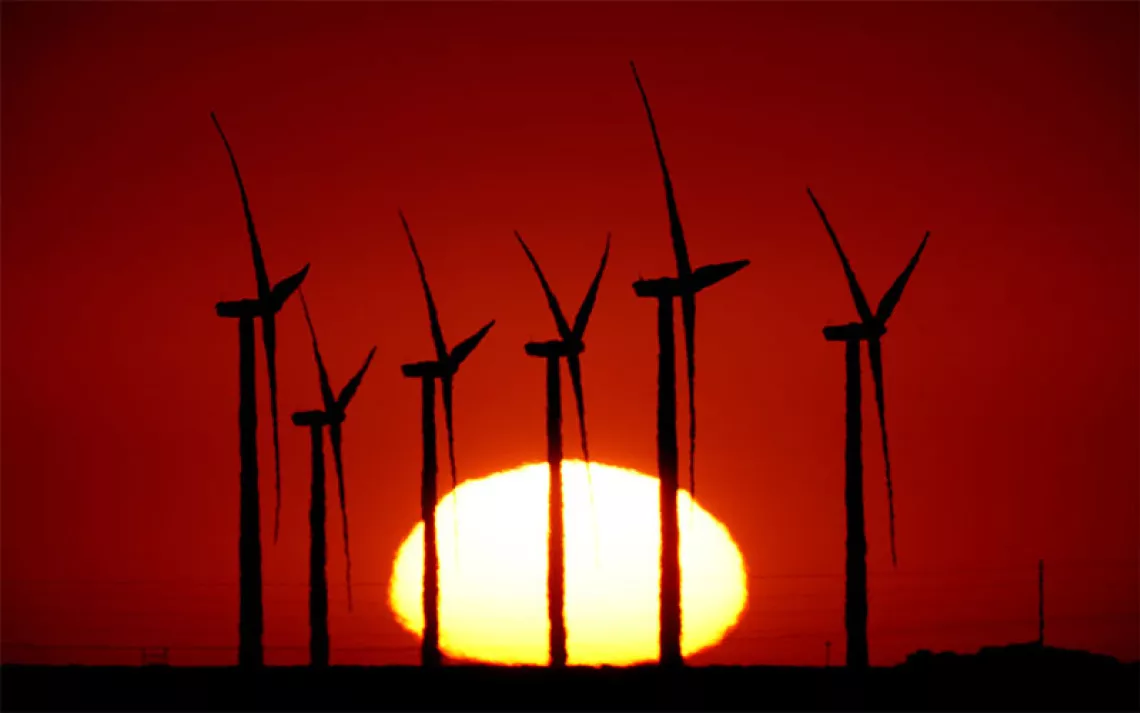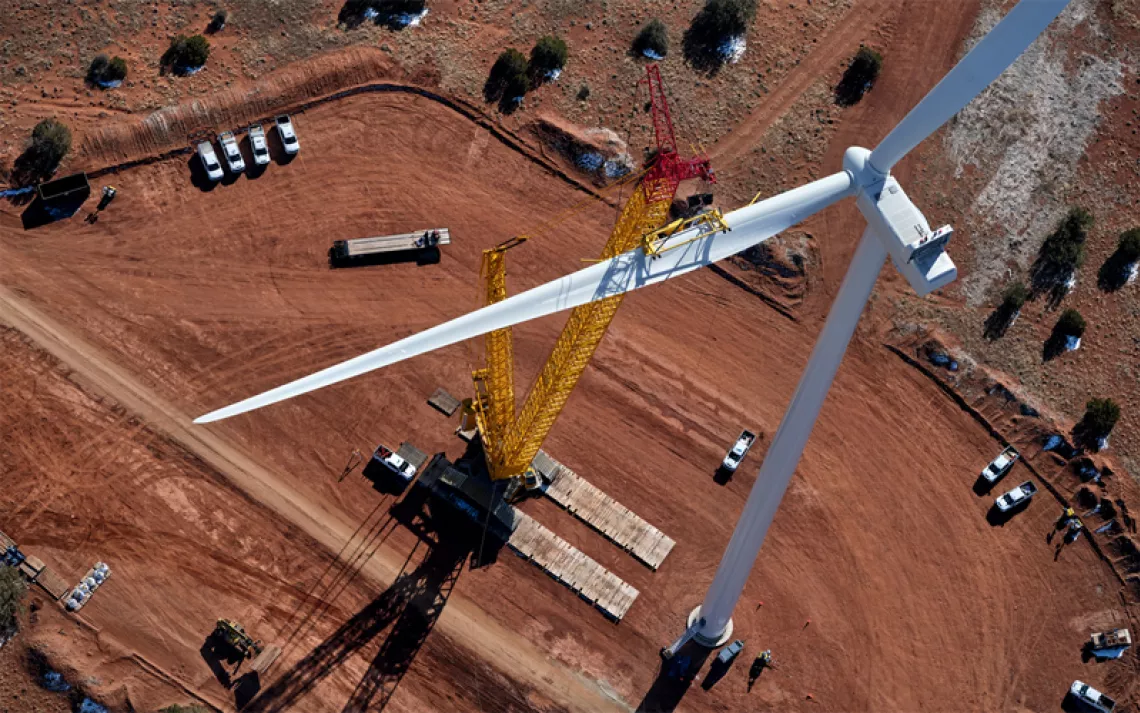The Crazy Lifestyle of a Woman Who Repairs Wind Turbine Blades
When she's not climbing in Patagonia, Jessica Kilroy hangs off wind turbines
Jessica Kilroy, rope-access technician for Rope Partner
Adapted from an interview with Jessica Kilroy by Kristine Wong.
I'm a climber, a singer-songwriter, and a conservationist. I grew up in Rexford, a tiny town in Montana about two hours northwest of Glacier National Park. My dad worked for the U.S. Forest Service for 35 years and is also a climber. He instilled in me an appreciation for the environment and the outdoors early on.
I've performed my music in 31 countries and have seen the effects of traffic, deforestation, and overpopulation. I started feeling that I was creating a big footprint flying across the world and not doing much for the earth. So I started brainstorming with a bunch of friends about how we could use our climbing skills to help the environment rather than hurt it. (There are a lot of jobs that utilize climbing in the oil industry.) One of them told me that I should join Rope Partner as a rope-access technician to service wind turbines. I've worked there for five years. The company is based in Santa Cruz, California, but we repair wind turbine blades all over the globe.
The job requires advanced rock-climbing and rope-rigging skills. Technicians work in high wind speeds on turbine towers that are between 262 and 328 feet tall. First we climb a ladder in the inside of the tower and anchor our ropes. Then we rappel off the nose cone and secure ourselves to the blunt side of the wind turbine blade. Our repair supplies are then hauled up in buckets.
It's a really physical job. Out of Rope Partner's 75 technicians, I'm one of only two women in the field. That's because not as many women have the skill sets needed—you also need expertise in fiberglass repair. I just happened to have fiberglass skills because I was a firefighter for seven years, working at the hotshot base helping to repair water tenders.
It's a crazy lifestyle. You're constantly traveling, since each job is four to six weeks in a different location. You have to do some very technical stuff and keep your cool.
When you're up on a tower, you have a main rope and a backup. In my opinion, this is safer than driving to work every day. For some jobs, you can be up there from six to eight hours, so you have to train your body to work in high winds. Even on a low-wind day you'll get bucked around, since you're up really high. And you have to be careful, because one side of the wind turbine blade is so sharp that it could cut your rope. Blades are tricky—they have many layers, and each turbine's blades are different, so you'll often be on the phone with the engineers while up in the air.
I had a close call once during a brush fire in Idaho. I was on a job, and the fire was pretty far away; the firefighters were dropping water on it, so I felt really safe. Then, after a couple hours, the wind suddenly started to gust at 26 miles per hour, which is our limit for working on the ropes. The fire flanked us on both sides, and the wind started to come up rapidly. We finished packing up and climbed down as quickly as we could. Before we got down, we saw a barn burn down completely. Luckily no one was hurt, and everyone got out in time.
We work mostly between spring and fall, so I can spend the winter relaxing with family and friends. I'm into rafting, and I also go climbing—it's easy and so much more fun because I'm not weighed down with the harness I use at work that has tools and gear. I do traditional crack climbing because it's less invasive—I use gear called cams to insert into cracks in the rock and then take them out so I leave no trace. I've climbed in 17 countries, including Cambodia, Laos, and Thailand. Argentina is one of my favorite places—Patagonia and El Chalten in particular. I also love climbing in Spain and at Indian Creek, in Utah.
The job has definitely changed me. It's created a deep appreciation for family time and free time. The work is so physical and so intense that whenever I'm not working, all the other things in life—like people bickering—don't bother me. I have peace and patience for all the other moments in my life. I appreciate the simple things, like drinking tea in the morning.
This article appeared in the May/June 2017 edition with the headline "Scaling New Heights."
 The Magazine of The Sierra Club
The Magazine of The Sierra Club



